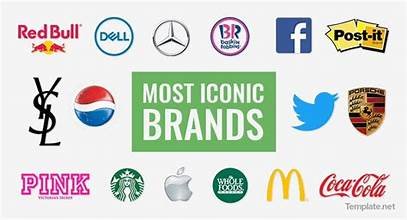
In marketing and business, some names resonate so deeply that they become synonymous with excellence, innovation, and longevity. These iconic brands have left an indelible mark on our culture and continue to shape how we perceive products, services, and the world itself. In this article, we’ll delve into the fascinating world of iconic brands, exploring what sets them apart, their impact on consumers, and why they endure the test of time.
Defining the “Iconic Brand”
Before we dive into the specifics, it’s important to understand what we mean by an “iconic brand.” While the term is often thrown around casually, it carries a profound significance. An iconic brand isn’t just a popular one or a company with a catchy logo; it’s a brand that has transcended its industry and established a deep, emotional connection with its audience. Think of brands like Apple, Coca-Cola, Nike, or Disney. These names aren’t just associated with products or services; they evoke powerful emotions and a sense of identity.
The Elements of Iconic Brands
What makes a brand iconic? Several key elements set them apart from the competition:
- Distinctive Identity: Iconic brands have a clear and consistent visual identity. Their logos, color schemes, and design elements are instantly recognizable, making them stand out in a crowded marketplace.
- Compelling Story: Behind every iconic brand, a compelling story resonates with consumers. Whether it’s Apple’s journey from a garage startup to a tech giant or Coca-Cola’s timeless message of happiness, these stories capture the imagination.
- Quality and Innovation: Iconic brands consistently deliver high-quality products or services. They also push the boundaries of innovation, staying ahead of the curve and setting trends in their respective industries.
- Cultural Influence: Iconic brands don’t just follow culture; they shape it. They become part of our daily lives, influencing what we buy and how we live, communicate, and express ourselves.
The Impact of Iconic Brands
Iconic brands have a profound impact on both consumers and the business world. Here are some ways in which they leave their mark:
- Brand Loyalty: Consumers often develop a deep loyalty to iconic brands. They trust these brands to deliver quality, consistently fostering long-term customer relationships.
- Market Leadership: Iconic brands often lead their respective markets, setting the standard for competitors to follow. Their influence can be seen in market trends and consumer preferences.
- Cultural Significance: Iconic brands become part of our cultural fabric. They inspire art, music, fashion, and even social movements. Think of how Nike’s “Just Do It” slogan has become a mantra for personal achievement.
- Economic Power: These brands wield significant economic influence. They can command premium prices for their products and services, and their financial success often extends beyond their core offerings.
The Timeless Appeal of Iconic Brands
One of the most intriguing aspects of iconic brands is their ability to remain relevant across generations. While the world around us constantly evolves, these brands manage to adapt and connect with new audiences while retaining their core values. This enduring appeal is a testament to the power of branding and marketing.
Cultural Milestones and Beyond
Iconic brands often transcend their original purpose to become cultural milestones. They serve as touchstones in our lives, reminding us of pivotal moments and evoking nostalgia. Whether it’s the first Macintosh computer that ignited the personal computing revolution or the timeless taste of a Coca-Cola shared with friends, these brands create memories that endure for generations. In the ever-evolving landscape of business and marketing, the legacy of iconic brands reminds us of the enduring power of a well-crafted identity and a meaningful connection with consumers.
Iconic Brands in Action
Now that we’ve delved into the concept of iconic brands let’s take a closer look at a few examples that have truly made their mark on the world:
- Apple Inc.– In a garage, Apple was founded in 1976 by Steve Jobs, Steve Wozniak, and Ronald Wayne.
Become synonymous with innovation, sleek design, and user-friendly technology. From the Macintosh to the iPhone, Apple products have revolutionized how we work, communicate, and entertain ourselves. The company’s commitment to quality and a seamless user experience has earned it a global following.
- Coca-Cola– Dating back to 1886, Coca-Cola is one of the world’s oldest and most recognized brands. Its iconic red and white logo and timeless “Open Happiness” message have made it a symbol of refreshment and joy. Coca-Cola’s ability to adapt to changing consumer preferences while maintaining its classic appeal is a testament to its enduring power.
- Nike– With its famous “Swoosh” logo and the inspiring “Just Do It” slogan, Nike has become a symbol of athletic excellence and determination. The brand’s partnership with legendary athletes and its commitment to pushing the boundaries of sports technology has made it a leader in the athletic apparel and footwear industry.
Lessons from Iconic Brands
What can businesses and marketers learn from the success of iconic brands? Here are some valuable takeaways:
- Consistency Matters: Iconic brands maintain a consistent identity and message over time. This helps build trust and recognition among consumers.
- Emotional Connection: Beyond products, iconic brands connect with consumers on an emotional level. They tap into values, aspirations, and desires.
- Innovation Is Key: Staying at the forefront of innovation is crucial. Iconic brands don’t rest on their laurels; they continuously reinvent themselves.
- Cultural Relevance: Brands must stay culturally relevant to remain iconic. They adapt to changing trends and societal shifts.
Conclusion
Iconic brands are more than just labels on products; they are cultural phenomena that shape our lives and influence how we perceive the world. Their enduring appeal, ability to connect with consumers deeply, and capacity to drive innovation make them a fascinating subject of study and admiration.




I needs to spend some time learning much more or understanding more.
Ok Sir As your wish